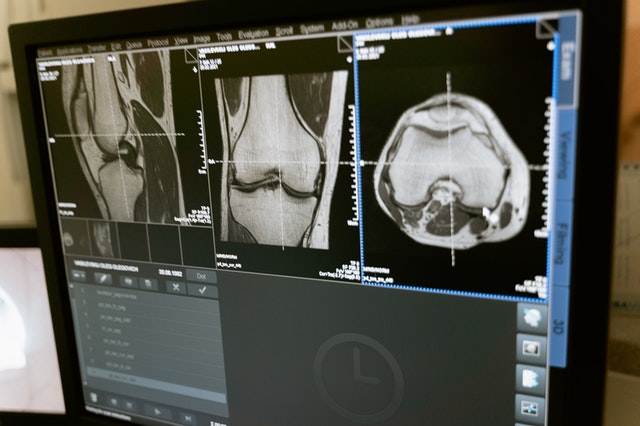Joint injuries are a common issue for people who have been involved in accidents. There are many different types of joint injuries, as well as causes and prognoses. Potentially, any part of the body where a bone, or group of bones, meet and connect can be damaged, especially during accidents.
Proving that this type of injury was a result of an accident and ascertaining the extent to which it impacts the victim’s lifestyle is not a straightforward process. Which is why you need to hire a personal injury lawyer that is used to dealing with these kinds of claims.
Initially, a joint injury may seem minor. People just assume that it will heal quite quickly and that their motor functions will return to normal. They think that will soon be walking, running, jumping, standing, sitting, eating, grasping, and holding as normal again.
Unfortunately, in many cases, it takes weeks or months before they can do so. During that time, they can rarely work as they normally would. They are also highly likely to have to pay high medical, drug and rehabilitation bills. Occasionally, they will never fully recover.
If you or your loved one suffered a joint injury, consult with a personal injury lawyer who can inform you about your rights, and help you get compensation for your injuries.
Examples of Joint Injuries
Over the years, we have helped clients to claim for joint injuries caused by:
- Repetitive stress or strain
- Workplace accidents
- Vehicle accidents
- Faulty products or equipment
- These are the types of joint injuries our clients have suffered from:
- Broken bones
- Torn ligaments
- Torn tendons
- Sprains
- Dislocations
As we mentioned earlier, any joint of the body can be affected, including the following:
- Ankles
- Shoulders
- Hips
- Elbows
- Knees
- Wrists
- The jaw
- Finger joints
- The toes
- We have helped clients to claim for:
- Elbow tendon injuries
- Broken ankles
- Inflamed bursa
- Hip fractures
- Knee injuries
- Torn posterior cruciate ligament (PCL)
- Torn anterior cruciate ligament (ACL)
- Shoulder joint injuries
- Rotator cuff tears
- Acromioclavicular joint injuries
- Wrist injuries
- Broken bones in the wrist
- Torn ligaments in the wrist
- Wrist sprains
Sadly, some people develop long-term conditions after they have suffered from a joint injury. The list includes:
- Musculoskeletal disorders (MSDs)
- Arthritis
- Tendinitis
- Bursitis
- Carpal tunnel syndrome
- Chronic pain
- Shoulder impingement syndrome
- A permanently diminished range of motion
Causes of Joint Injuries
There are numerous causes of accidental joint injuries, the most common of which are:
These kinds of accidents can happen to anyone at any time. Every year, there are around 160,000 car accidents. Statistically speaking, most people will have at least one accident that involves a vehicle during their lifetime.
They are also quite likely to have an accident in the workplace. These are the most common ones:
- Construction site accidents
- Ladder accidents
- Scaffolding accidents
- Roofing accidents
- Forklift accidents
- Slip and fall accidents
- Falls from heights
- Getting caught in machinery
- Being hit by items that have been dropped from a height
People can also experience the following kinds of injuries due to the negligence of others:
- Sports injuries
- Dog bites and animal bites
- Tripping or falling over objects
- Getting hurt while using faulty products or equipment
Recoverable Damages from Joint Injuries
Should you suffer this kind of personal injury you will likely end up with significant bills that you will need to cover. We are here to make sure that any compensation you are rewarded covers the following:
- Medical bills
- The cost of physical therapy and rehabilitation
- Ongoing care expenses
- Medication
- Assistive devices such as wheelchairs and crutches
- Lost wages and earnings
- Loss of benefits
- Loss of future earnings
In some cases, we are also able to secure damages for the following:
- Pain and suffering
- Emotional trauma
- Stress
Each case is different, but we have the experience to be able to help you regardless of how you got hurt or how serious your injuries are. We have access to medical professionals who will help us to assess your case. To prove that you were hurt due to the negligence of others.
As well as work out how likely, it is that you will heal completely and be able to return to your former life. This enables us to look ahead and include loss of future earnings in your claim, should it be appropriate to do so.
Joint injuries can have devastating long-term effects. Protect yourself and your loved one from prolonged suffering by consulting with a personal injury lawyer from Diamond & Diamond.
Contact Diamond & Diamond Now to Talk to a Joint Injury Lawyer
Diamond & Diamond is a law firm that specializes in personal injury cases, including those that involve joint injuries.
We work with a strong network of medical experts and physical therapy providers. They help us to build the best possible case for our clients. This includes gathering evidence, interpreting your medical notes, and working out what the long-term effect of your injury is likely to be.
If you have suffered a joint injury as a result of a failure on the part of another person, please get in touch to discuss your case.
Visit any of our offices throughout Ontario
Call our 1-800 number any time, any day
Reach us through our online contact form on our website
PRO TIP :
“Don’t underestimate a joint injury by just ‘walking it off’ — always seek medical attention to prevent the injury from getting worse.”














